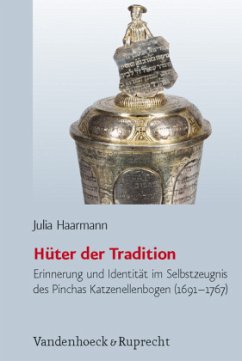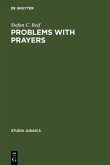Scholars have long noted the importance of ego-documents for the analysis of historic worldviews. Julia Haarmann offers the first thorough exploration of the Hebrew ego-document Yesh Manchilin, written by rabbi Pinchas Katzenellenbogen (1691-1767). As convincingly argued, Katzenellenbogen formulates and decides upon traditions, memories and core values that are to be transmitted to his descendants because they safeguard the family's specific identity within Jewish society. Here Haarmann applies terminology taken from the area of media studies when she tentatively calls this selective process "cultural gatekeeping": What aspects of family-history does Katzenellenbogen find essential for his children to know, which traditions are to be observed and which values are of central importance? By analyzing the hitherto almost neglected ego-document Yesh Manchilin in light of these questions several revealing insights are provided into multicolored thriving Jewish life in Aschkenas at thebeginning of the 18th century.



